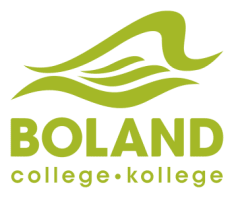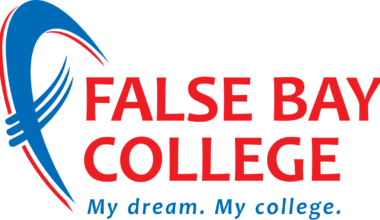The University of Cape Town (UCT) is one of Africa’s most prestigious and internationally recognized institutionsrenowned for its commitment to academic excellenceresearch innovationand cultural diversity.
Established in 1829UCT has become a top choice for students locally and globally. It offers a comprehensive range of programs across disciplines.
As we approach 2025many students and parents are increasingly interested in the best courses UCT offers and the associated fees and funding options available.
UCT updates its fees annually based on program demandsmarket standardsand educational costs.
Let us explore the 10 best UCT courses for 2025including details on their fee structureprogram highlightscareer opportunitiesand critical factors to consider when choosing the right course.
Table of contents
- About the University of Cape Town (UCT)
- Top 10 List of UCT Courses for Undergraduate Studies
- 1 Bachelor of Commerce (BCom) in Accounting
- 2. Bachelor of Commerce (BCom) in Economics
- 3. Bachelor of Science (BSc) in Statistics
- 4. Bachelor of Science (BSc) in Medical Biochemistry
- 5. Bachelor of Science (BSc) in Physiology
- 6. Bachelor of Arts (BA) in African Language & Literature
- 7. Bachelor of Laws (LLB)
- 8. Bachelor of Arts (BA) in Sociology
- 9. Bachelor of Arts (BA) in Linguistics
- 10. Bachelor of Arts (BA) in English Studies
- Full List of UCT Courses
- What Are The Admission Requirements for UCT Courses?
- 1. Eligibility Criteria for Undergraduate Applicants
- 2. National Senior Certificate (NSC) Requirements
- 3. Mature Age Exemption
- 4. Non-South African Applicants and Matriculation Exemption
- 5. Minimum Performance Criteria and Admission Tests
- 6. Faculty-Specific Requirements
- 7. Additional Requirements for Specific Programs
- 8. English Language Proficiency for International Students
- How Many Courses Can I Apply for at UCT?
- How Much is The UCT Application Fee?
- What are The Benefits of Studying at UCT?
- Frequently Asked Questions
- Conclusion
- References
- Recommendations
About the University of Cape Town (UCT)
The University of Cape Town (UCT) is South Africa’s oldest and one of the most prestigious universitiesrenowned for its academic achievementsinfluential researchand vibrant multicultural environment.
Founded in 1829 as the South African CollegeUCT has grown from a small school focused on arts and sciences to a globally recognized institution.
TodayUCT consistently ranks among the top universities in Africa and has gained international acclaim. It frequently features in global university rankings as a top choice for students across disciplines.
The university’s location allows students to experience high-quality educationthe dynamic cultureand the natural beauty of Cape Townmaking UCT a desirable destination for both local and international students.
UCT offers various undergraduate and postgraduate programs across six faculties: CommerceEngineering & the Built EnvironmentHealth SciencesHumanitiesLaw, and Science.
These faculties cover fields from medicine and law to economicsengineeringsocial sciencesand creative arts.
The university’s focus on critical thinkingleadershipand innovation ensures its graduates are well-prepared for success in various professional fields.
Read: Top 10 Risk Management Courses in South Africa | Cost and Requirements
Top 10 List of UCT Courses for Undergraduate Studies
Looking to pursue undergraduate programs at UCThere are some of the best UCT courses you can find.
1 Bachelor of Commerce (BCom) in Accounting
The Accounting program at UCT is designed for students aiming for financeauditor consultancy careers. It meets the accreditation requirements for students planning to become Chartered Accountants (CA).
2025 Fee Estimate: R52,000 – R60,000 per year for local students; R90,000 – R110,000 for international students.
2. Bachelor of Commerce (BCom) in Economics
This program provides a comprehensive understanding of economic theoriespoliciesand analytical techniques. It is ideal for students interested in economic policyconsultingor market analysis roles.
Fee Estimate: R50,000 – R58,000 for local students; R88,000 – R100,000 for international students.
3. Bachelor of Science (BSc) in Statistics
This program focuses on statistical methodsprobability theoryand data analysiswhich are essential for careers in the data-driven fields of financeresearchand tech.
Fee Estimate: R48,000 – R56,000 per year for local students; R85,000 – R98,000 for international students.
4. Bachelor of Science (BSc) in Medical Biochemistry
Medical Biochemistry combines chemistry and biology to study molecular functions in the human body. This course is foundational for students pursuing careers in medical research or biotechnology.
Fee Estimate: R55,000 – R63,000 for local students; R95,000 – R110,000 for international students.
5. Bachelor of Science (BSc) in Physiology
Physiology students learn about the body’s systems and functionspreparing them for careers in health sciencesclinical researchand medical innovation.
Fee Estimate: R52,000 – R60,000 per year for local students; R88,000 – R105,000 for international students.
Read Also: Top 15 Best Bridging Courses in South Africa
6. Bachelor of Arts (BA) in African Language & Literature
This program explores African languages and literaturefocusing on the region’s cultural heritagelinguistic diversityand literary traditions.
Fee Estimate: R45,000 – R52,000 per year for local students; R80,000 – R90,000 for international students.
7. Bachelor of Laws (LLB)
UCT’s LLB program covers South African and international lawpreparing students for careers in lawpublic policyand corporate governance.
Fee Estimate: R55,000 – R65,000 per year for local students; R100,000 – R120,000 for international students.
8. Bachelor of Arts (BA) in Sociology
The Sociology program at UCT examines social structuresinequalitiesand human behavior. It’s ideal for public policysocial workor academic research students.
Fee Estimate: R45,000 – R52,000 for local students; R80,000 – R90,000 for international students.
9. Bachelor of Arts (BA) in Linguistics
This program explores the science of languageanalyzing syntaxphoneticsand semanticsessential for translationlanguage educationand research careers.
Fee Estimate: R45,000 – R52,000 per year for local students; R80,000 – R90,000 for international students.
10. Bachelor of Arts (BA) in English Studies
English Studies at UCT offers a deep dive into literaturecritical analysisand creative writingequipping students for mediapublishingand education careers.
Fee Estimate: R45,000 – R52,000 per year for local students; R80,000 – R90,000 for international students.
Full List of UCT Courses
Here’s a comprehensive table of courses offered at the University of Cape Town (UCT) along with their approximate fees. Please note that these fees are subject to changeand it is advisable to always keep tabs with the UCT’s official website for the most current information.
| Course Type | Course Name | Tuition Fees (Approx.) |
|---|---|---|
| Undergraduate Courses | ||
| Faculty of Commerce | Bachelor of Commerce (BCom) | ZAR 50,000 per year |
| Bachelor of Business Science | ZAR 50,000 per year | |
| Bachelor of Accounting | ZAR 50,000 per year | |
| Faculty of Engineering | Bachelor of Science in Engineering (BSc Eng) | ZAR 60,000 per year |
| Bachelor of Architectural Studies | ZAR 60,000 per year | |
| Faculty of Health Sciences | Bachelor of Medicine and Bachelor of Surgery (MBChB) | ZAR 75,000 per year |
| Bachelor of Science in Nursing | ZAR 60,000 per year | |
| Faculty of Humanities | Bachelor of Arts (BA) | ZAR 50,000 per year |
| Bachelor of Social Science | ZAR 50,000 per year | |
| Faculty of Law | Bachelor of Laws (LLB) | ZAR 50,000 per year |
| Postgraduate Courses | ||
| Faculty of Commerce | Master of Business Administration (MBA) | ZAR 600,000 for the program |
| Master of Commerce (MCom) | ZAR 50,000 per year | |
| Faculty of Engineering | Master of Science in Engineering | ZAR 50,000 per year |
| Faculty of Health Sciences | Master of Public Health (MPH) | ZAR 50,000 per year |
| Master of Medicine (MMed) | ZAR 50,000 per year | |
| Faculty of Humanities | Master of Arts (MA) | ZAR 40,000 per year |
| Faculty of Law | Master of Laws (LLM) | ZAR 50,000 per year |
| Short Courses | ||
| Project Management | ZAR 12,000 | |
| Digital Marketing | ZAR 10,000 | |
| Financial Management | ZAR 10,000 | |
| Leadership Development | ZAR 12,000 | |
| Data Science for Business | ZAR 15,000 | |
| Online Courses | ||
| Introduction to Data Science | ZAR 5,000 | |
| Business Management Essentials | ZAR 5,000 | |
| Digital Transformation | ZAR 5,000 | |
| Financial Literacy | ZAR 5,000 | |
| Sustainable Development Goals (SDGs) | ZAR 5,000 |
Here’s a document that shows the cost of attendance at UCT.
Alsoread: Top 15 Vocational courses in South Africa | 2025 Fee Structure
What Are The Admission Requirements for UCT Courses?
Here’s a detailed breakdown of the admission requirements for prospective undergraduate studentsincluding information on eligibilityNational Senior Certificate (NSC) requirementsmature age exemptionand other essential admission standards.
1. Eligibility Criteria for Undergraduate Applicants
To be considered for any UCT programan applicant must first meet the university’s eligibility criteria based on their academic background and intended program of study.
UCT uses a points system to assess eligibilityincluding the Admission Points Score (APS)Faculty Points Score (FPS)or Weighted Points Score (WPS)depending on the faculty.
These scores are calculated from the applicant’s academic performance and are essential for determining admission potential.
2. National Senior Certificate (NSC) Requirements
For South African studentsthe NSC is essential for admission to UCT’s degreediplomaor certificate programs. UCT requires applicants to meet the NSC’s minimum academic standardswhich vary by program level:
- Bachelor’s Degree Programs: Applicants must have earned an NSC with a minimum score that qualifies them for a bachelor’s degree. This usually means achieving at least 50% in key subjectsthough specific programs may require higher scores.
- Diploma Programs: UCT also offers diploma programswhich typically require lower minimum scores than degree programs but still demand satisfactory NSC performance.
- Higher Certificate Programs: UCT’s higher certificate programs may accept students who do not meet the bachelor’s or diploma criteria but have demonstrated sufficient ability in secondary school subjects.
In addition to general NSC criteriaapplicants must meet specific subject requirements for their chosen programsuch as higher-level performance in mathematics for Science and Commerce faculties.
3. Mature Age Exemption
For South African applicants who are 23 years or older and hold a Grade 12 certificateUCT offers a mature age exemption option. This pathway allows students who may need to meet the standard entry requirements to pursue higher education.
Mature age exemption applicants can apply to most programsexcept those in the Health Sciences and Law faculties.
Note: Students seeking mature age exemption are encouraged to contact the relevant faculty office to determine if conditional admission is possible. This option provides flexibility for adult learners and working professionals aiming to further their education.
4. Non-South African Applicants and Matriculation Exemption
International students or South African students with non-NSC qualifications must meet the requirements for a matriculation exemptionwhich qualifies them to study at South African universities. UCT assesses these qualifications case-by-case to ensure they align with the South African school-leaving certificate standards.
Common Requirements for International Applicants:
- International Baccalaureate (IB) and A-level students must achieve specific grades in relevant subjects.
- Applicants from countries with different grading systems may need to consult the South African Matriculation Board or UCT’s admissions office to ensure eligibility.
5. Minimum Performance Criteria and Admission Tests
For most UCT programsthe following components play a key role in determining final admission:
- Admission Points Score (APS)Faculty Points Score (FPS)or Weighted Points Score (WPS): Each program at UCT has a unique points requirement based on the academic demands of that field. This score is calculated from the applicant’s grades in designated high school subjects.
- National Benchmark Tests (NBT): UCT requires applicants to complete the NBTs to assess academic readiness. These tests evaluate language proficiencymathematicsand critical thinking skills. For competitive programs like Medicine or Engineeringhigh NBT scores may be essential to gain a place.
- Subject-specific Performance Levels: For each programUCT may require specific performance levels in subjects relevant to the degree. For examplea Bachelor of Commerce applicant must perform highly in mathematicswhile a student applying to the Humanities may need strong scores in languages and social sciences.
Read: Best 15 TUT Courses In South Africa | 2025 Fee Structure
6. Faculty-Specific Requirements
UCT’s faculties each have unique requirementsand applicants need to review the criteria specific to their program. Here’s a brief overview:
- Commerce and Science Faculties: Require a strong foundation in mathematicswith minimum performance scores in NSC or equivalent exams.
- Health Sciences: High APS and NBT scores and strong performance in biology and physical sciences are critical.
- Humanities: English and social science subjects are emphasizedand while high APS scores are preferredeach application is considered holistically.
7. Additional Requirements for Specific Programs
In addition to academic criteriasome UCT programs have supplementary requirements that may include:
- Interviews or Portfolio Submissions: Applicants to programs in fields such as Architecture or Fine Arts may be required to submit a portfolio or attend an interview.
- Personal Statements or Motivational Essays: Programs in competitive facultieslike Law or Medicinemay ask for a personal statement to understand the applicant’s motivation and goals.
- Letters of Recommendation: Some postgraduate programs may require recommendation letters from previous instructors or employers to assess the applicant’s readiness for advanced study.
8. English Language Proficiency for International Students
For non-native English speakersUCT requires proof of English proficiency through standardized tests like the TOEFL or IELTS. Minimum scores must meet UCT’s standardensuring students can fully engage in English-language instruction and coursework.
How Many Courses Can I Apply for at UCT?
At the University of Cape Town (UCT)applicants can apply for up to two programs. This option is highly encouragedas selecting two programs increases your chances of admission to UCTespecially given the competitive nature of many courses.
You can select both of your program choices from the same faculty or explore programs across different faculties.
For instanceapply for both a Bachelor of Commerce in Accounting and a Bachelor of Commerce in Economics within the Commerce Faculty.
Alternativelyapply for a Bachelor of Laws in the Law Faculty and a Bachelor of Arts in Sociology in the Humanities Faculty.
How Much is The UCT Application Fee?
The University of Cape Town (UCT) application fee is R100 for all applicants. This fee applies to both local and international students and is non-refundable. Payment of this fee is required when submitting your applicationas it ensures that UCT can process your application promptly.
Here are a few important points to remember about the application fee:
- Payment Methods: UCT accepts various payment methodsincluding online paymentsbank depositsand electronic fund transfers (EFT). Detailed payment instructions can be found on the UCT website during the application process.
- Proof of Payment: Be sure to keep a copy or proof of paymentas it may be required to confirm your application submissionespecially if you encounter any issues.
What are The Benefits of Studying at UCT?
1. World-Class Academic Excellence
UCT is home to the highest number of top-rated researchers in South Africameaning students have access to some of the most respected experts in their fields. Learning in this environment allows students to engage with current research and innovation across diverse disciplines.
2. Top-Notch Research Opportunities
UCT’s robust research focus allows students to participate in projects that address real-world issuessuch as climate change and public health. Undergraduates and postgraduates can access cutting-edge labs and research centersgaining valuable hands-on experience.
3. Strong Global Rankings and Recognition
Consistently ranked as Africa’s top universityUCT’s global reputation enhances the value of its degrees. Graduating from a highly ranked institution opens doors for international career and study opportunitiesgiving UCT graduates an edge in the job market.
4. Excellent Career Support and Industry Connections
UCT’s dedicated career services and strong industry connections help students secure internshipsjob placementsand mentorship. Many top employers actively recruit UCT graduatesrecognizing their strong academic and practical skills.
5. Innovative Campus and Learning Facilities
The UCT campuslocated on the slopes of Table Mountainprovides stunning views and state-of-the-art facilitiesincluding well-equipped labs and libraries. These resources enhance the student learning experiencemaking research and study more effective.
Read: Top 3 Months Short Courses in South Africa | Cost and Requirements
Frequently Asked Questions
UCT offers a wide range of coursesincluding undergraduate and postgraduate programs in various fields such as artssciencesengineeringbusinessand health.
Most undergraduate programs typically last three to four yearsdepending on the field of study.
You can apply online through the UCT website by filling out the application form and submitting the required documents.
Conclusion
The University of Cape Town (UCT) is a beacon of academic excellenceoffering world-class programs across various disciplines.
While the fees may vary depending on the programthe value of a UCT education is undeniable. Both local and international students have access to top-tier researchindustry connectionsand a vibrant campus experience.
Studying at UCT offers an education and the foundation for a successful and fulfilling career in an ever-evolving world.
References
- studyingdevelopment.uct.ac.za– Courses
- uct.ac.za– Postgraduate Hub
- https://uct.ac.za/faculties– Faculties






